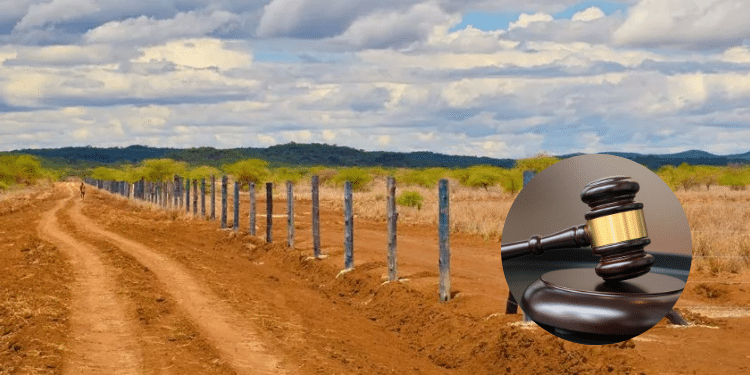Did you know that in Kenya, a person in possession of land owned by someone else may acquire a valid title deed to it, as long as certain requirements are met? Adverse possession is a legal doctrine that allows someone to claim ownership of land they have occupied without the owner’s permission for a certain amount of time.
Adverse possession is based on the United Kingdom doctrine that allows a trespasser to claim ownership of land after 12 years of occupancy.
The process, referred to as squatting, is based on the idea that land that is not used or maintained should be put to use and that landowners should monitor their property.
Adverse possession
Otherwise referred to as squatters’ rights, the doctrine is well-founded in Kenyan law and allows a person who has unlawfully occupied another person’s land for a continuous period of at least 12 years to legally apply for registration rights over the property.
The doctrine applies to both registered and unregistered land.
Also Read: 10 Common Offences That Could Land You in Jail
Legal underpinnings are laid bare under the Statute of Limitations; Limitations of Actions Act Cap 22.
“An action may not be brought by any person to recover land after the end of twelve years from the date on which the right of action accrued to him or, if it first accrued to some person through whom he claims, to that person,” section 7 states.
Section 13 (1) adds, “A right of action to recover land does not accrue unless the land is in the possession of some person in whose favor the period of limitation can run (which possession is in this Act referred to as adverse possession), and, where under sections 9, 10, 11 and 12 of this Act a right of action to recover land accrues on a certain date and no person is in adverse possession on that date, a right of action does not accrue unless and until some person takes adverse possession of the land.”
Key factors of acquiring land through the legal process
However, for an adverse possession claim to be successful, the claimant must meet several key factors.
The claimant must use the land for at least 12 years without interruption (continuous and uninterrupted use), must occupy the land exclusively without owner’s consent, exercising rights similar to that of the owner (exclusive possession), and the occupation must be visible and known to the owner or the public, not hidden or in secret (open and notorious use).
Also Read: Tactics the Government is Using to Force Tanzania’s Maasai Off Their Ancestral Land
Also, the occupation must be without the consent or license of the true owner (non-permissive) and must be inconsistent with the rights of the true owner, not necessarily aggressive (hostile intent).
The claimant must further demonstrate occupation within a clear and defined boundary of the disputed land. (definite boundary).
How to file
To file for adverse possession in Kenya, one needs several supporting documents including an Affidavit of Possession, witness statements, photographic evidence, land records or maps, utility bills if available, and the Originating Summons.
The process begins with gathering solid evidence that you have occupied the land continuously and without interruption for a significant period.
This could include things like utility bills, photos, witness statements, or any documentation that proves your presence and activities on the land over time.
After collecting this proof, it’s important to engage an experienced land lawyer who understands the process and can help you navigate the legal system effectively.
Court process
With their guidance, you then file a legal document known as an Originating Summons (OS) in the Environment and Land Court (ELC) asking the court to recognize you as the rightful owner of the land.
In the ELC, an OS is a formal legal document used to commence a civil action, particularly when a dispute involves matters of law with a low likelihood of substantial factual disputes.
Once the case is filed, the current registered landowner must be officially informed by being served with court papers in which they will have the opportunity to respond or object to the claim.
The matter will then go before a judge, where both sides can present their arguments and evidence. If the court finds in your favor, it will issue an order confirming your ownership.
With that court order, you can apply for a title deed in your name, officially making you the legal owner of the land.
A landowner can, however, challenge an adverse possession claim by proving that they took legal action before 12 years, the occupier was granted permission to use the land, and that the occupation was not exclusive.
Follow our WhatsApp Channel and X Account for real-time news updates.




![Debate Rages Over Proposed Increase In Legal Drinking Age [Video] Nacada Raises Legal Drinking Age From 18 To 21]( https://thekenyatimescdn-ese7d3e7ghdnbfa9.z01.azurefd.net/prodimages/uploads/2025/07/beer-360x180.jpg)



































































![Debate Rages Over Proposed Increase In Legal Drinking Age [Video] Nacada Raises Legal Drinking Age From 18 To 21]( https://thekenyatimescdn-ese7d3e7ghdnbfa9.z01.azurefd.net/prodimages/uploads/2025/07/beer-120x86.jpg)